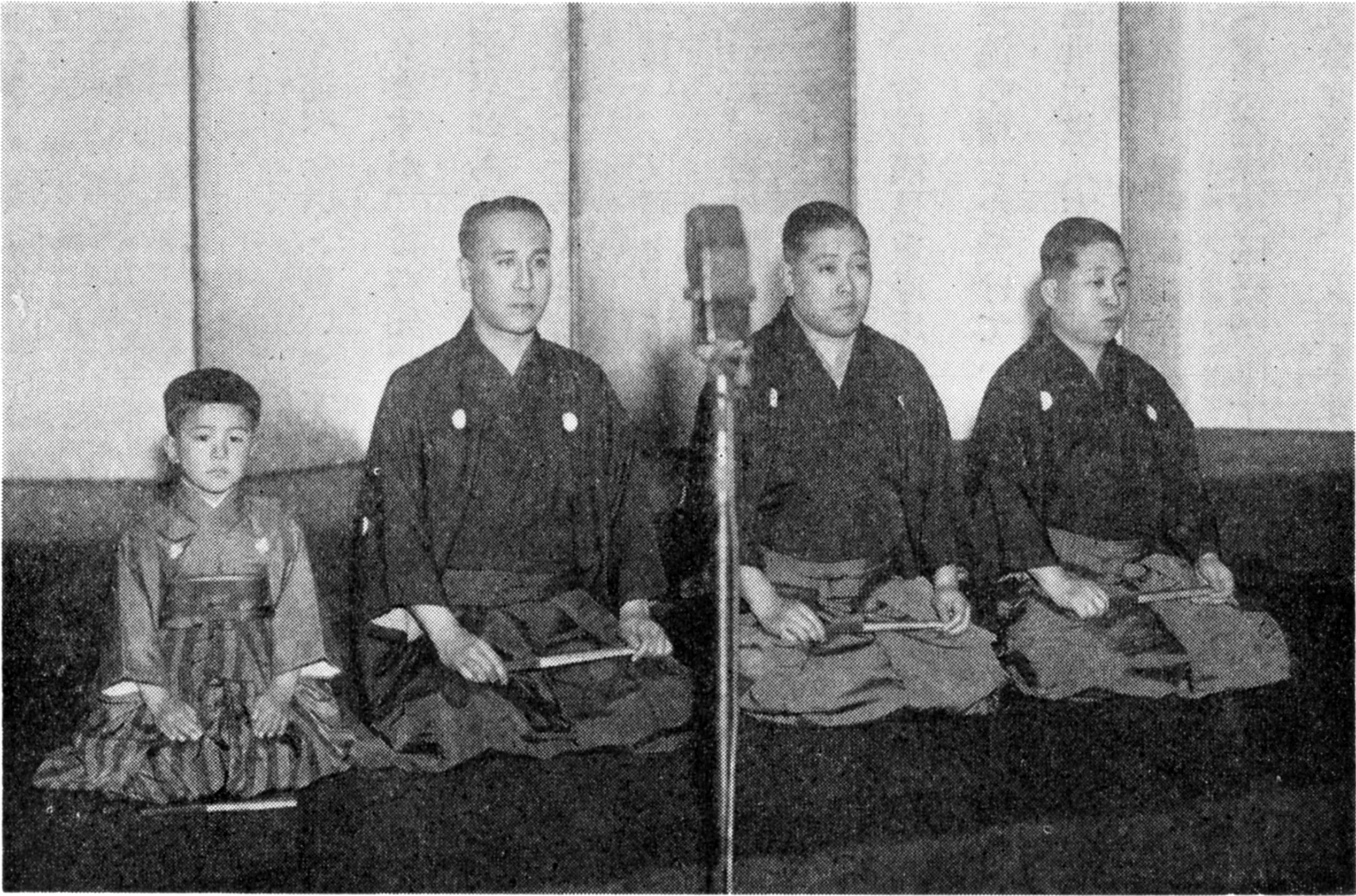Yōkyoku on:
[Wikipedia]
[Google]
[Amazon]
 , also called , is a part of the traditional
, also called , is a part of the traditional
 , also called , is a part of the traditional
, also called , is a part of the traditional Noh
is a major form of classical Japanese dance-drama that has been performed since the 14th century. Developed by Kan'ami and his son Zeami, it is the oldest major theatre art that is still regularly performed today. Although the terms Noh and ' ...
theatre in Japan
Japan ( ja, 日本, or , and formally , ''Nihonkoku'') is an island country in East Asia. It is situated in the northwest Pacific Ocean, and is bordered on the west by the Sea of Japan, while extending from the Sea of Okhotsk in the north ...
.
The name refers to the vocal section of the music associated with classical Noh drama. ''Yōkyoku'' is sung by the chorus
Chorus may refer to:
Music
* Chorus (song) or refrain, line or lines that are repeated in music or in verse
* Chorus effect, the perception of similar sounds from multiple sources as a single, richer sound
* Chorus form, song in which all verse ...
and rarely by the other actors. It usually consists of references to classical texts or Buddhist sutra
''Sutra'' ( sa, सूत्र, translit=sūtra, translit-std=IAST, translation=string, thread)Monier Williams, ''Sanskrit English Dictionary'', Oxford University Press, Entry fo''sutra'' page 1241 in Indian literary traditions refers to an aph ...
s and are
composed in groups of five and seven syllable
A syllable is a unit of organization for a sequence of speech sounds typically made up of a syllable nucleus (most often a vowel) with optional initial and final margins (typically, consonants). Syllables are often considered the phonological "bu ...
s.
These vocalizations, as well as the performance of accompanying instruments, help to produce a multitude of supernatural and celestial sounds that are intrinsic to the Noh music genre.
It has two basic styles:
*Kotoba: words/heightened speech
*Fushi: melody
A melody (from Greek language, Greek μελῳδία, ''melōidía'', "singing, chanting"), also tune, voice or line, is a Linearity#Music, linear succession of musical tones that the listener perceives as a single entity. In its most liter ...
References
*Frederic, Louis (2002). "Japan Encyclopedia." Cambridge, Massachusetts: Harvard University Press. {{DEFAULTSORT:Yokyoku Noh Japanese styles of music Vocal music Japanese traditional music